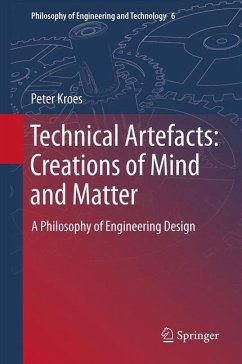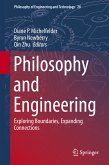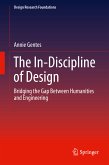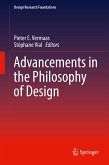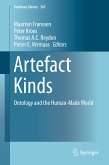This book presents an attempt to understand the nature of technical artefacts and the way they come into being. Its primary focus is the kind of technical artefacts designed and produced by modern engineering. In spite of their pervasive influence on human thinking and doing, and therefore on the modern human condition, a philosophical analysis of technical artefacts and engineering design is lacking. Among the questions addressed are: How do technical artefacts fit into the furniture of the universe? In what sense are they different from objects from the natural world, or from the social world? What kind of activity is engineering design and what does it mean to say that technical artefacts are the embodiment of a design? Does it make sense to consider technical artefacts to be morally good or bad by themselves because of the way they influence human life? The book advances the thesis that technical artefacts, conceived of as physical constructions with a technical function, have a dual nature; they are hybrid objects combining physical and intentional features. It proposes a theory of technical functions and technical artefact kinds that does justice to this dual nature, analyses engineering design from the dual nature point of view, and argues that technical artefacts, because of their dual nature, have inherent moral significance.
Dieser Download kann aus rechtlichen Gründen nur mit Rechnungsadresse in A, B, BG, CY, CZ, D, DK, EW, E, FIN, F, GR, HR, H, IRL, I, LT, L, LR, M, NL, PL, P, R, S, SLO, SK ausgeliefert werden.

